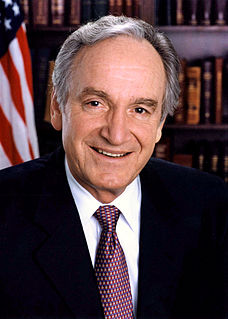A Quote by Patrick Soon-Shiong
If you look upon chronic diseases as an epidemic, and you see that the chronically ill are the poor, then you see that this issue of the uninsured is not really a moral but a financial obligation to change health care.
Related Quotes
The bad things the U.S. health care system are that our financing of health care is really a moral morass in the sense that it signals to the doctors that human beings have different values depending on their income status. For example, in New Jersey, the Medicaid program pays a pediatrician $30 to see a poor child on Medicaid. But the same legislators, through their commercial insurance, pay the same pediatrician $100 to $120 to see their child. How do physicians react to it? If you phone around practices in Princeton, Plainsboro, Hamilton - none of them would see Medicaid kids.
The quality of health care in Germany is not as good as people sometimes believe it to be. We have problems with chronic diseases. The German system allows too many hospitals and specialists to treat chronic diseases. We do not have enough volume in many institutions to deliver good quality, and we do have fairly strict separations ... between primary physicians, office specialists and hospital specialists. But I think the quality problems can be solved in the next couple of years, and we have made major progress in diabetes, coronary artery disease and pulmonary disease care.
Since 1994, lawmakers on both sides of the aisle have considered it politically risky to offer a plan to fix America's broken health care system. The American public, though, has paid the price for this silence as health care costs skyrocketed, millions went uninsured, and millions more grappled with financial insecurity and hardship.
...those who sit at their work and are therefore called 'chair workers,' such as cobblers and tailors, suffer from their own particular diseases ... [T]hese workers ... suffer from general ill-health and an excessive accumulation of unwholesome humors caused by their sedentary life ... so to some extent counteract the harm done by many days of sedentary life. On the association between chronic inactivity and poor health. Ramazzini urged that workers should at least exercise on holidays
Those with health insurance are overinsured and their behavior is distorted by moral hazard. Those without health insurance use their own money to make decisions based on an assessment of their needs. The insured are wasteful. The uninsured are prudent. So what's the solution? Make the insured a little more like the uninsured.



































